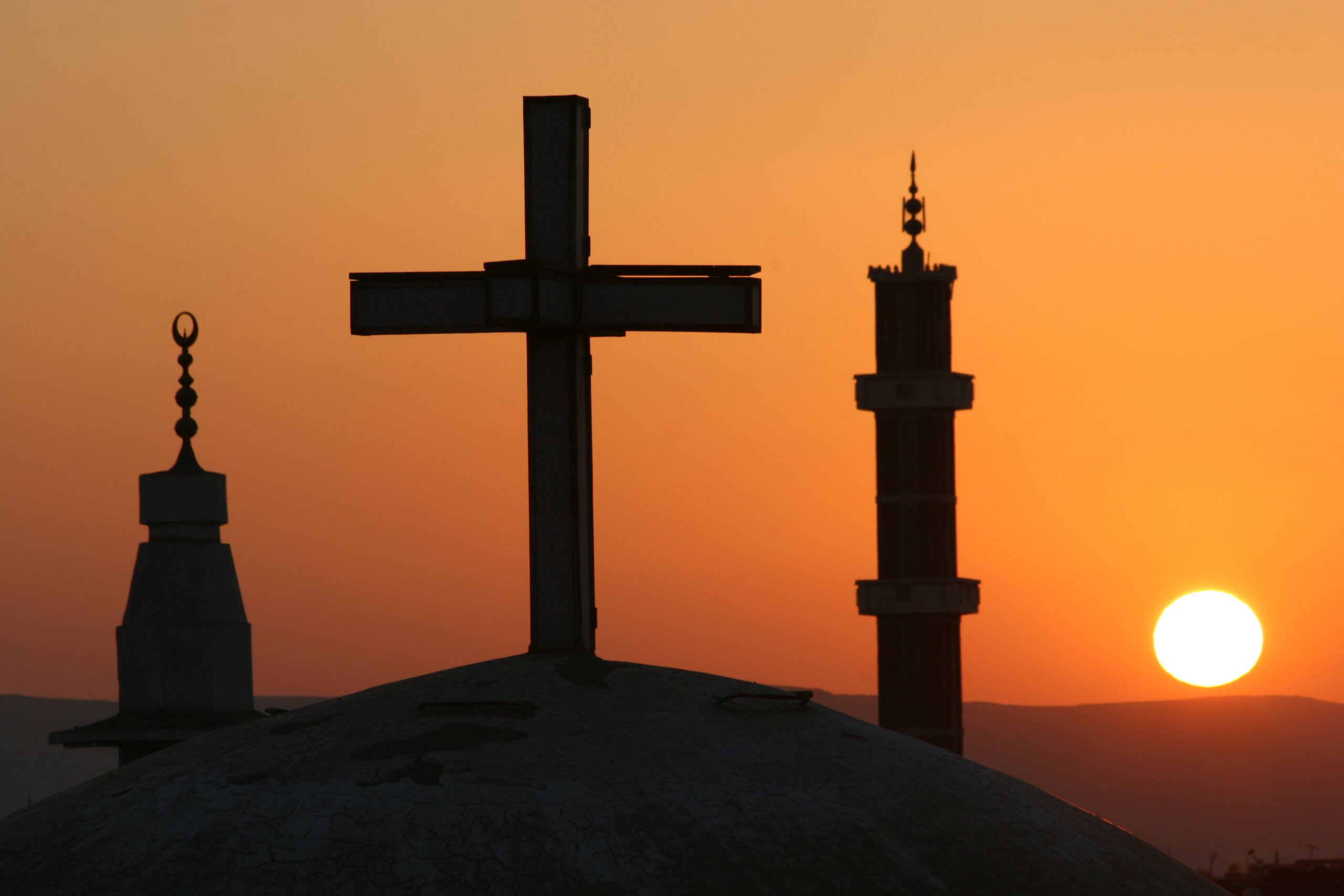Islam and Christianity have long been at odds as two dominant expansionary world religions, but geography has allowed some distance between the two faiths. As population increases and our world becomes more globalized, it is inevitable that the two religions will be swept toward each other with its devotees forced to face off not only in Africa and Asia, but in the urban centers of Europe and increasingly on the US.
As an example let’s look at the continent of Africa. Christianity is flourishing in Sub-Saharan Africa due to strong evangelization efforts. With the added boost of globalization and connectedness, Christianity is rapidly growing and thrusting itself northward.
At the same time, Islam is rapidly spreading down the continent due to booming population and economic coercion. When the population expands, so does the religion that allows people to simply be born into it. In addition, outside Muslim nations are pumping petrol dollars into new mosques, health care and free universities across the continent to attract new followers.
The two religions are gaining momentum and find themselves barreling toward each other and clashing in the heart of the African Sahel.
Many who belong to the Muslim faith were either born into it or have joined in order to get an education or advantage. The most radical fringe, mainly bound by poverty and injustice, find a security and identity in fundamentalism and are willing to die for the cause. However, the mass majority of Islamic young people are eager for change and truly hungry for the freedom that Christianity offers.
Knowing this, we need to make sure we are reaching out to the young people in Islamic nations and let them know there is another way. To proclaim an authentic and loving message—the message of freedom in Christ—and allow them to choose who will guide their lives.
A reactionary and militant ‘Christian’ response does not represent the message of Jesus of Nazareth, neither does a watered down contextualized message that fails to present the radical claims of Jesus as the Son of God. We need to build a robust apologetic of loving and uncompromising witness in the next generation as they encounter Islam, whether it be in South Manhattan our in Northern Sudan.
In order to communicate the Gospel, we need to utilize progressive communication avenues such as literacy and educational programs, the Internet, radio, and television. We need to craft messages that will resonate with the young person who is excited about coming changes and present the Gospel to them in a relevant and generative way.




1 Comment
Mt. Hoskins,
I respectfully disagree with your hypothesis,
“Islam and Christianity have long been at odds as two dominant expansionary world religions, but geography has allowed some distance between the two faiths. As population increases and our world becomes more globalized, it is inevitable that the two religions will be swept toward each other with its devotees forced to face off not only in Africa and Asia, but in the urban centers of Europe and increasingly on the US.”
Have you visited countries like Singapore where various religion individuals live next door to one another in apartment buildings, celebrate each other holidays, ect.
I didn’t understand your phrase:
“However, the mass majority of Islamic young people are eager for change and truly hungry for the freedom that Christianity offers”
How can Christianity offer freedom if you are stuck being a servant of God? Please explain.